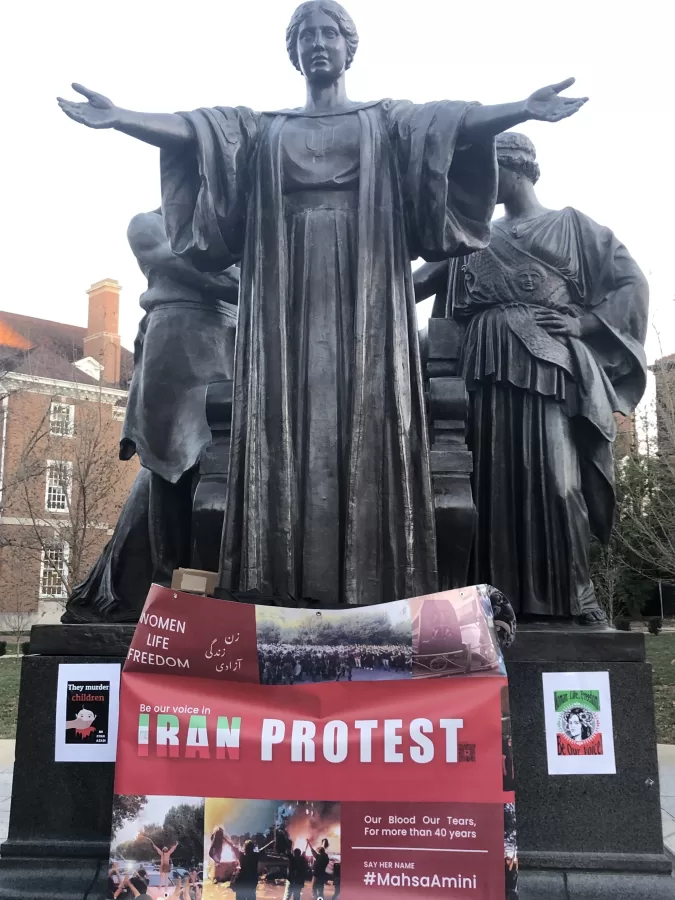Protests against Iran’s ruling regime have been happening in Iran and around the world as a result of 22-year-old Mahsa Amini’s death in police custody in September, after she was arrested by Iran’s “morality police” for incorrectly wearing her hijab.
On Thursday afternoon, a group of University students and community members gathered around Alma Mater to participate in the Iranian Scholars for Liberty’s Worldwide Campus Rally for Iran. It was a demonstration in solidarity with the people of Iran protesting the present regime that occurred on over 200 university campuses worldwide.
“I want any chance that I can be given to let people know that this fight is not about religion,” said one participant in the rally, a graduate student in Engineering. Attendees chose to remain anonymous for safety concerns. “It’s about giving people the opportunity to live the way they want.”
The rally on Thursday was hosted by the University’s Iranian Heritage Foundation, a community group that promotes Iranian culture through art and music on campus and in the Champaign-Urbana community.
Since the Islamic Revolution in 1979, Iran has been ruled under Shariah, which is the incorporation of Shariah — “the way” in Arabic — into the laws of a state. While many countries enforce some aspects of Sharia, Iran is among one of the stricter enforcers of such laws. This includes a compulsory hijab law for all women which has been in place since 1983.
“If we do not cover our heads, we would not be allowed to go to school, seven-year-old girls have to cover their hair to go to school and have the opportunity to have an education,” the graduate student said about the strict environment Iranian women and girls live in. “And that goes (until) the end of your life.”
Iranians and those in solidarity are rallying around the mantra “Women, Life, Freedom,” a mantra that a doctoral student at the rally described as “honoring the role of the women that have been suppressed.”
Though Iran is not the only Middle Eastern country with a disparity in rights between men and women, the doctoral student added that they are “glad that in the Middle East, we are the first nation who started the first revolution (led) by women.”
The past two months of protest have been among the greatest challenges of the current Iranian regime in its 43-year history, and the Iranian government is responding with force.
The Norway-based Iran Human Rights NGO organization claims that 326 people have been killed at the very least in protests by Iranian security forces as of Nov. 12, including 43 children, and thousands have been arrested. Such violence has resulted in a United Nations investigation into human rights violations and sanctions by the European Union against Iran. However, despite the violence, students still feel the need to come out and protest.
“As one of the international students here, it is my responsibility to just care about other students in their countries,” said another graduate student in Engineering who participated in the rally.
It has been two months of protest since Amini’s death, but students at the rally said they were still uncertain about what the results could be for Iran and the Middle East.
“There could be a new Arab Spring, there could not be,” the doctoral student said, “It depends how this goes.”









